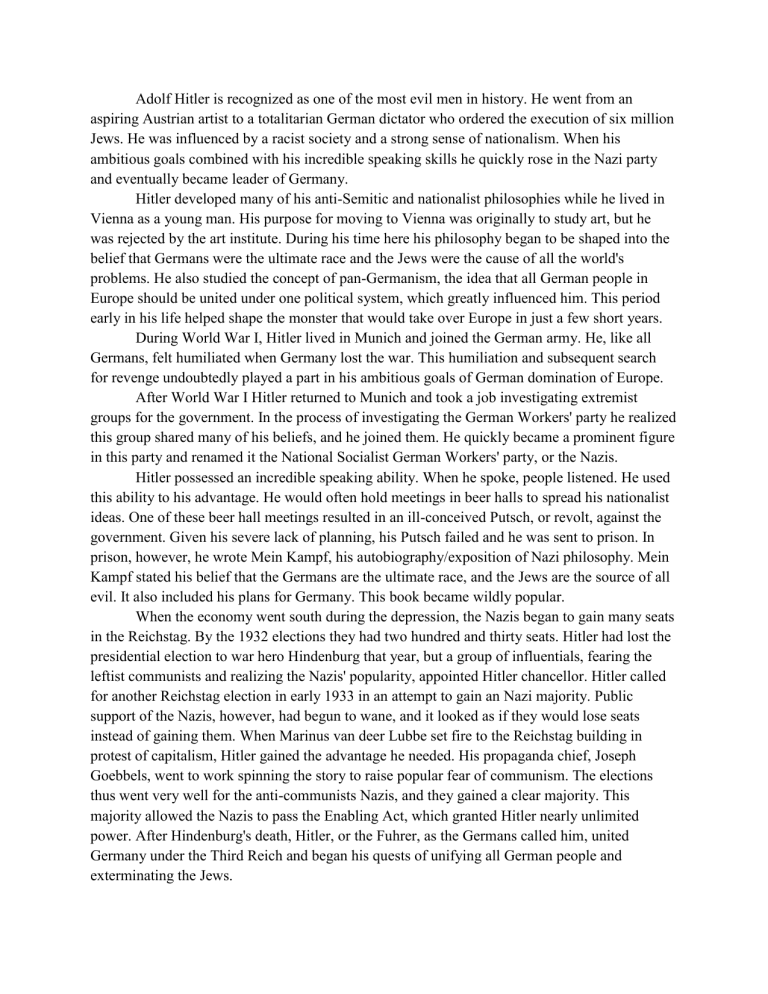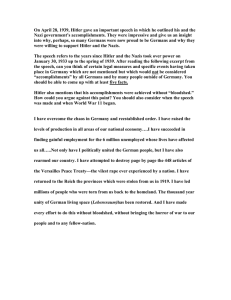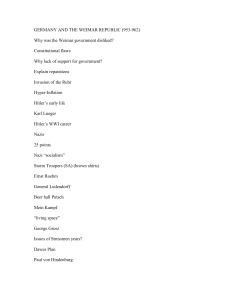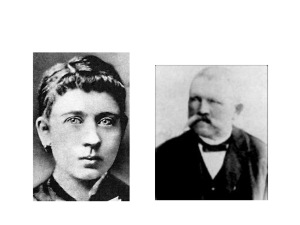
Adolf Hitler is recognized as one of the most evil men in history. He went from an aspiring Austrian artist to a totalitarian German dictator who ordered the execution of six million Jews. He was influenced by a racist society and a strong sense of nationalism. When his ambitious goals combined with his incredible speaking skills he quickly rose in the Nazi party and eventually became leader of Germany. Hitler developed many of his anti-Semitic and nationalist philosophies while he lived in Vienna as a young man. His purpose for moving to Vienna was originally to study art, but he was rejected by the art institute. During his time here his philosophy began to be shaped into the belief that Germans were the ultimate race and the Jews were the cause of all the world's problems. He also studied the concept of pan-Germanism, the idea that all German people in Europe should be united under one political system, which greatly influenced him. This period early in his life helped shape the monster that would take over Europe in just a few short years. During World War I, Hitler lived in Munich and joined the German army. He, like all Germans, felt humiliated when Germany lost the war. This humiliation and subsequent search for revenge undoubtedly played a part in his ambitious goals of German domination of Europe. After World War I Hitler returned to Munich and took a job investigating extremist groups for the government. In the process of investigating the German Workers' party he realized this group shared many of his beliefs, and he joined them. He quickly became a prominent figure in this party and renamed it the National Socialist German Workers' party, or the Nazis. Hitler possessed an incredible speaking ability. When he spoke, people listened. He used this ability to his advantage. He would often hold meetings in beer halls to spread his nationalist ideas. One of these beer hall meetings resulted in an ill-conceived Putsch, or revolt, against the government. Given his severe lack of planning, his Putsch failed and he was sent to prison. In prison, however, he wrote Mein Kampf, his autobiography/exposition of Nazi philosophy. Mein Kampf stated his belief that the Germans are the ultimate race, and the Jews are the source of all evil. It also included his plans for Germany. This book became wildly popular. When the economy went south during the depression, the Nazis began to gain many seats in the Reichstag. By the 1932 elections they had two hundred and thirty seats. Hitler had lost the presidential election to war hero Hindenburg that year, but a group of influentials, fearing the leftist communists and realizing the Nazis' popularity, appointed Hitler chancellor. Hitler called for another Reichstag election in early 1933 in an attempt to gain an Nazi majority. Public support of the Nazis, however, had begun to wane, and it looked as if they would lose seats instead of gaining them. When Marinus van deer Lubbe set fire to the Reichstag building in protest of capitalism, Hitler gained the advantage he needed. His propaganda chief, Joseph Goebbels, went to work spinning the story to raise popular fear of communism. The elections thus went very well for the anti-communists Nazis, and they gained a clear majority. This majority allowed the Nazis to pass the Enabling Act, which granted Hitler nearly unlimited power. After Hindenburg's death, Hitler, or the Fuhrer, as the Germans called him, united Germany under the Third Reich and began his quests of unifying all German people and exterminating the Jews. As Hitler gained popularity, he gained power. His Nazi party quickly took over the government after World War I, and through clever maneuvering he established himself as Fuhrer of all Germany. His radical nationalism and racism, which he developed early in life, brought much pain and suffering to Europe. Hitler will long be remembered as a great politician and a horrible person.



